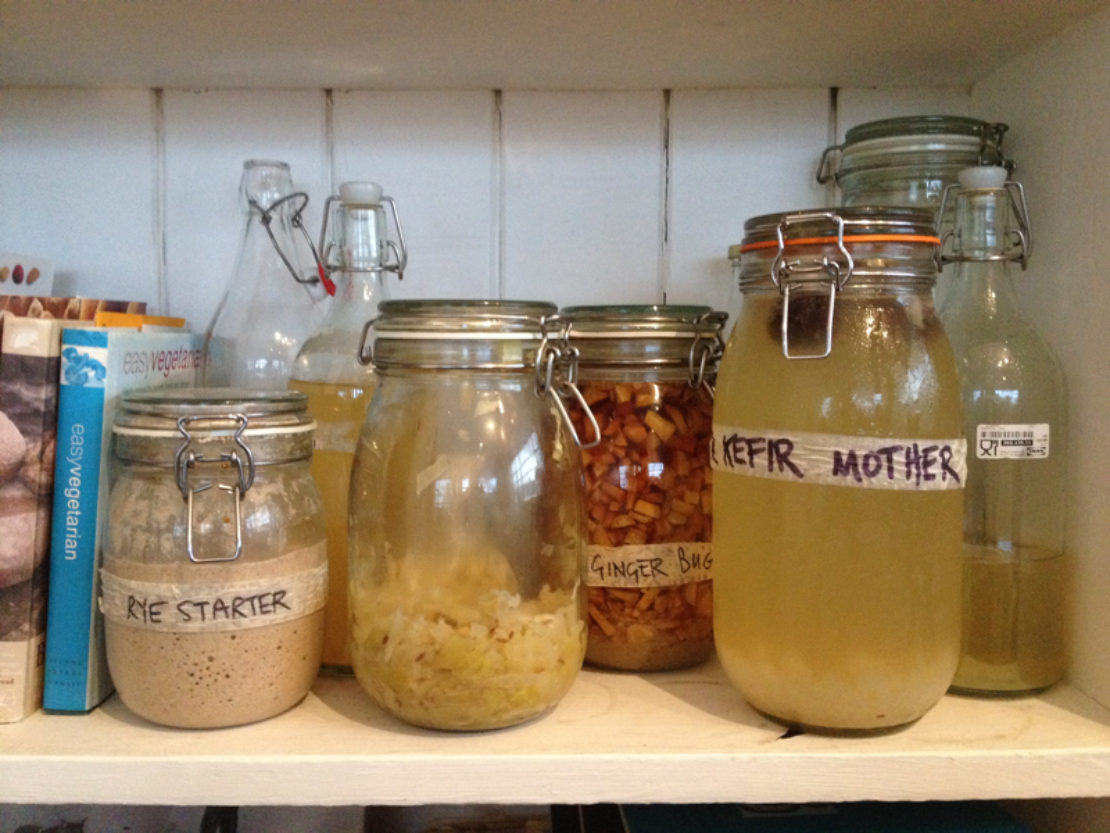Go with your gut

We've all become numb to the never-ending cycle of scientific 'breakthroughs' promising to extend life, eradicate disease, prevent illness, or simply significantly improve human existence – all with one quick and easy lifestyle change – only for it to be debunked, followed by the next major breakthrough. And if one of these discoveries comes with a connection – however tenuous – to managing diet and weight, well, you could be forgiven for sticking (carcinogenic) cocktail sausages in your ears and bellowing, "But I love bread and butter!", over and over.
But when it comes to health and diet, there are clearly genuinely intriguing things being researched and published, which, when considered calmly and with a good side order of scepticism, it is worth unblocking an ear for. One such area, with particular pertinence to your bowels – and yes, could also potentially improve your life, cure disease and make you drop a trouser size or three – is the burgeoning study of microbes, the microorganisms that share our body space. It just so happens that the change in diet the science prescribes is bang on trend.
Bug life
Microbes are simply microscopic living organisms, the tiny bugs that live in every part of the biosphere – including our bodies. They include bacteria and viruses, some fungi and protozoa. The bad ones are 'bugs', or germs, but many are essential for a healthy life – and we couldn't exist without them.
These microbiota evolve alongside us and outnumber our own cells ten times over, introducing 1,000 extra genes into our bodies. Each of us is roughly 1.5kg foreign microorganism: there are about 100 trillion of them hanging out in your gut right now, in fact, in a composition unique to you and they, plus the others scattered about your person, make up what has recently been deemed to qualify as a human organ in its own right – the microbiome.
Last month, some of America's brightest scientific minds called for the formation of a Unified Microbiome Initiative to bring together US research in the field, declaring that better knowledge of the microbiome could "transform our understanding of the world and launch innovations in agriculture, energy, health, the environment and more." Their call was swiftly followed by a request for an International Microbiome Initiative, so that a holistic, global approach could also be established. Why all the fuss?
Until 2007, most human microbes were impossible to examine as their natural habitats could not be reproduced in laboratory conditions, keeping our full biodiversity hidden. Breakthroughs in a strand of DNA sequencing, known as metagenomics, have allowed scientists to begin to figure out precisely what else is living in our bodies.
Study of microbes could potentially improve your life, cure disease and make you drop a pant size or three. It just so happens that the change in diet the science prescribes is bang on trend
The Human Microbiome Project (HMP) was established in 2008 by the US National Institutes of Health as five-year, $115m (£76m) project to map human microbiota. By 2012 its researchers had put together the full microbial makeup of a healthy human. The results of this work – and other similar studies – have started to be applied to ascertain the far-reaching effects of microbiota, with insights into diet, disease, immunity and mental health.
Understanding how ocean and soil microbes affect atmospheric CO2 will be critical for better understanding climate change, for instance, and by investigating the microbes in soil, we could reduce the need for pesticides, fertiliser and water, and make more land arable.
Restoring normal human microbial ecosystems can save lives, say scientists. As a result of recent work we know that not only does the human microbiome play a large role in how and how long we live, but we are also able to regulate it through diet – from infancy, what we eat is the main factor in the makeup of the microbiome.

More than a fad?
In the slippery world of supposedly helpful dietary advice, there is actually a lot to get excited about. That the microbiome affects digestion and metabolism is not news, however, by uncovering precisely how its component organisms help the body break down food, and produce vitamins and anti-inflammatories, we can look for new ways to ameliorate or cure conditions such as obesity and type 2 diabetes.
We also now know that the typical protein and fat-heavy western diet has a deleterious effect on the biodiversity of gut flora compared to a plant-based, low-fat diet. As everyone’s microbiome is unique, centres such as the Personalised Nutrition Project in Israel are examining ways to tailor individual diets to their microbiome's needs. In the meantime, we can tweak our eating habits to increase microbial diversity by consuming as wide a variety of unprocessed foods as possible, including hefty amounts of prebiotics such as artichokes, celery, leeks, bananas and other fibrous foods which act as bowel fertiliser; as well as probiotics such as yoghurt, sourdough bread, kombucha, kimchi, keffir, tempeh, miso and all manner of other pickles and ferments.
But despite this (incrementally) mounting evidence, the more jaded will naturally need further convincing before they start messing with dinner menus.
Although there is solid science here, the microbiome movement is still being sucked into the hype cycle. "The media is being irresponsible, as are many scientists," says Professor Jonathan Eisen, who has been researching in the field for more than 10 years runs and runs a blog calling out instances of 'microbiomania'. "Human health is influenced by genetics, environment, microbes, diet, air quality, and 100s of other things," he adds. "What we need is a view of humans as a system and part of a larger system. Yes, the human microbiome is critically important. But not out of context."